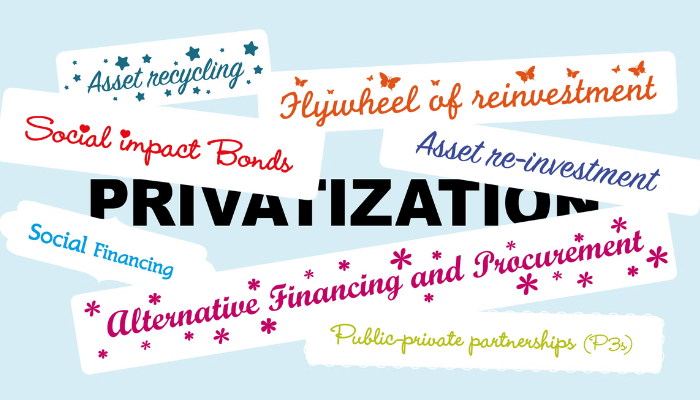If you want to know where Nigeria’s next wave of growth will be unlocked, or stalled, watch the Bureau of Public Enterprises (BPE). Created by the Public Enterprises (Privatisation and Commercialisation) Act of 1999 as the Secretariat to the National Council on Privatisation (NCP), the BPE’s mandate is simple but vital: move state assets from political control to productive use. When it works, capital flows and services improve.
The leadership reset in mid-2024, with Ayodeji Gbeleyi appointed Director-General, was an opportunity to rebuild credibility. But seizing it requires confronting structural weaknesses that keep the Bureau reactive, under-resourced and vulnerable to policy swings. Four issues stand out: mandate confusion, costly legacy disputes, weak institutional capacity, and policy inconsistency.
“BPE should be the transaction authority and reform secretariat, responsible for designing, running and closing divestments and concessions while monitoring covenants post-close.”
In 2024, the BPE clashed with the Ministry of Finance Incorporated (MOFI) over who speaks for government equity in electricity distribution companies (DisCos). BPE leaned on its statutory role under the PE Act and the Electric Power Sector Reform Act; MOFI relied on its custodial mandate. This power tussle unsettled investors in a sector where clarity is oxygen. An MOU between BPE and MOFI has calmed tensions, but the episode underscored the need for explicit legal demarcation.
Protracted disputes like the ALSCON saga highlight the price of weak contract management and poor post-transaction monitoring. Such cases freeze assets, deter serious bidders, and force investors to price legal risk into offers—or exit altogether. Fortunately, there are already signs of a stronger project structuring and post-transaction monitoring regime in the BPE.
BPE’s remit spans dozens of sectors and hundreds of assets, but its resources often lag behind its mandate. In an era when bidders arrive with blue-chip advisors, the state must be equally well advised. Encouragingly, BPE has begun engaging top-tier local and international advisers across transactions. Yet pipelines are only as strong as the people, systems and data rooms behind them.
And of course, Nigeria’s volatile macroeconomy and episodic fiscal crises often trigger “emergency” decisions that undermine a coherent asset strategy. Investors notice—and discount valuations accordingly.
But in truth, Nigeria is hardly unique. Kenya replaced its 2005 privatisation law with a new act in 2023, only for the High Court to strike it down in September 2024 on constitutional grounds—paralysing the pipeline. The lesson is clear: build bulletproof processes and transparent stakeholder management from day one. India offers a more encouraging example. Through the Department of Investment and Public Asset Management (DIPAM), New Delhi runs a rolling, transparent pipeline for disinvestment and asset monetisation. Processes and governance are standardised, and progress is publicly tracked under the National Monetisation Pipeline.
Closer to home, Ghana consolidated oversight of state assets through the State Interests and Governance Authority (SIGA). Beyond transactions, SIGA issues State Ownership Reports, signs performance compacts, and has documented reductions in state-owned enterprise losses, showing that governance, not just sales, drives credibility. South Africa’s approach, unbundling Eskom, shifting shareholder responsibilities to line ministries, and opening space for private participation in transmission and logistics, demonstrates the value of sequencing reform before equity sales.
So, what should Nigeria do? It is crucial that mandates are clarified. MOFI should be the professional shareholder of record, managing residual equity, dividends and board nominations. BPE should be the transaction authority and reform secretariat, responsible for designing, running and closing divestments and concessions while monitoring covenants post-close. Amending the PE Act to reflect this split would end recurring turf wars.
Secondly, we must move from episodic projects to a three-year Privatisation and Concessions Pipeline, refreshed quarterly. For each asset, publish the route to market, milestones and timelines. Standardise data-room checklists, transaction templates and decision logs recording NCP approvals. Then we need to court-proof transactions by protecting deals through early stakeholder mapping, conflict-of-interest screening, and legally standardised agreements. Kenya’s limbo should be a warning; better to vaccinate than litigate.
BPE’s credibility will rise or fall with electricity, so we must prioritise power by recapitalising weak DisCos, streamlining the Federal Government’s voice (MOFI for ownership, BPE for transactions and enforcement), and acting decisively. Reliable power is the clearest proof that reform works, and private capital is safe.
It is very important to institutionalise accountability, perhaps borrowing from Ghana by publishing an annual State Ownership and Privatisation Report. It should list all federal holdings, board nominations, dividend flows, covenant compliance and transaction outcomes. This would give the NCP and BPE an authoritative accountability platform. And since privatisation is not an end in itself, post-privatisation commitments ought to be carefully tracked. A covenant tracker, with semi-annual scorecards, would allow the state to exercise step-in or claw-back rights where needed, avoiding ALSCON-style drift and showing Nigeria can be a tough, predictable counterparty.
Successful privatisation hinges on credible public-private partnerships. But Nigeria’s PPP framework is convoluted. Statutorily, BPE has overseen concessions, while the Infrastructure Concession Regulatory Commission (ICRC) regulates PPPs. A recent policy twist suggesting ICRC could assume transaction management responsibilities risks plunging the system into global best-practice misalignment. The government must clarify roles before investor confidence erodes further.
None of these reforms are glamorous, and many are politically tough. But the dividend is tangible: a trusted process that attracts stronger bidders, covenants that survive elections, and a pipeline that finances itself over time. With clear mandates, a published pipeline, stronger post-transaction monitoring and a credible power-sector strategy, the Nigerian privatisation landscape will truly thrive. Done right, it will quietly unlock capital and service delivery—the very engine of growth Nigeria urgently needs. From all indications, the BPE today is on a positive trajectory of agility and professionalism, with a clear intent to deliver on its mandate.
Dr Hani Okoroafor is a global informatics expert advising corporate boards across Europe, Africa, North America, and the Middle East. He serves on the Editorial Advisory Board of BusinessDay. Reactions welcome at [email protected]









